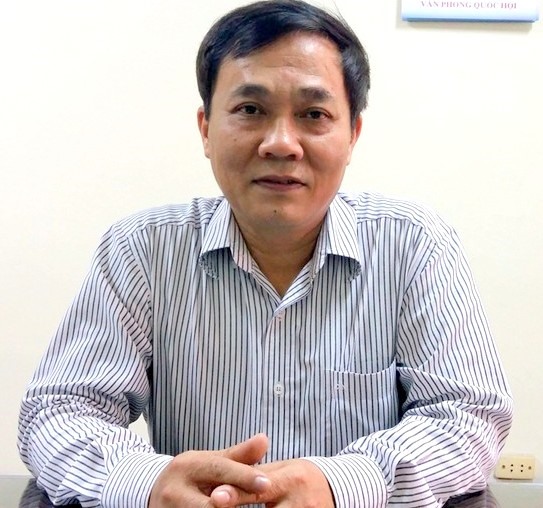.jfif) Opinion
Opinion

Phạm Lương Sơn, deputy director general of Việt Nam Social Security, talks to Việt Nam News Agency on the imperative need to increase health insurance coverage to all Vietnamese citizens.
 |
| Phạm Lương Sơn |
Phạm Lương Sơn, deputy director general of Việt Nam Social Security, talks to Việt Nam News Agency on the imperative need to increase health insurance coverage to all Vietnamese citizens.
Will you please tell us some of the most notable achievements over the last 5 years implementing the Party Central Committee’s Resolution on the national policy on social and health insurance in the period from 2012 – 2020?
By May 2018, more than 81 million out of nearly 94 million Vietnamese people - some 85.6 percent of the Vietnamese population – were covered by health insurance. This percentage is much higher than the target set in Resolution 21 of the Party CC.
In 2017 alone, the health insurance sector paid more than VNĐ88 trillion ($3.8 billion) for 170 million hospital visits.
One of the tasks laid down in 2018 for Việt Nam Social Security (VSS) was to expand social insurance coverage to disadvantaged people, including people living in remote areas.
In 2018, one of the biggest challenges facing the VSS is that the amount of money contributed by the participants is often smaller than the service costs they enjoy. To solve this problem, we need strong co-ordination between the Social Insurance sector and particularly hospitals and clinics nationwide to prevent an imbalance in the health insurance budget at the grassroots levels.
By 2020, we set a goal to achieve a balance between health insurance contributions and health treatment for all participants.
More recently, people with medical cards living in the rural areas can receive health checks or treatment at district clinics. But this policy has been misused at some health facilities. Has the VSS adopted any solutions to solve this problem?
Since 2015, all people living in rural areas with medical cards can have health checks or treatment at district hospitals and clinics. The policy has brought about big benefits to many people. However, in reality, a few health facilities and people have abused this policy for their own benefit. As a result, there have been some negative impacts on the country’s health insurance system. We hope, in the near future, to prevent such things in order to have healthy medical services for all people while punishing those who misuse the system.
Việt Nam is acknowledged as a model country with a wide coverage the population participating in the health insurance scheme.
But what we should do more is improve the quality of our health services, particularly through the use of health insurance cards. We are confident that the goal of having all people participating in the health insurance scheme will be achieved by 2020, as written in Resolution 21 of the Party Central Committee.
A resolution adopted at the 6th Plenum of the Party Central Committee on October 26, 2017, has reiterated the Party and Government’s resolve to provide better healthcare. Does the VSS face any challenges in realising this resolution?
We have studied the Party CC’s Resolution thoroughly and will try our best to bring it to life. Of course, during the implementation, if we face any big challenges we will consult with the Ministry of Health, the Government and the Party before making any decisions.
What are the challenges the VSS has faced in providing high quality healthcare to people?
The quality of the health service depends on three major factors; firstly the material foundations; secondly, medical equipment; and thirdly, medical staff. Of these 3 factors, human resources and the capacity of health workers are the most essential. These challenges are faced not only by Việt Nam but also for other regional countries. In my opinion, to solve the labour force problem, particularly for health workers at grassroots levels, we need to adopt mid-term and long-term plans to train health workers so that they can improve performance and gain trust from the general public, particularly patients. _VNS




